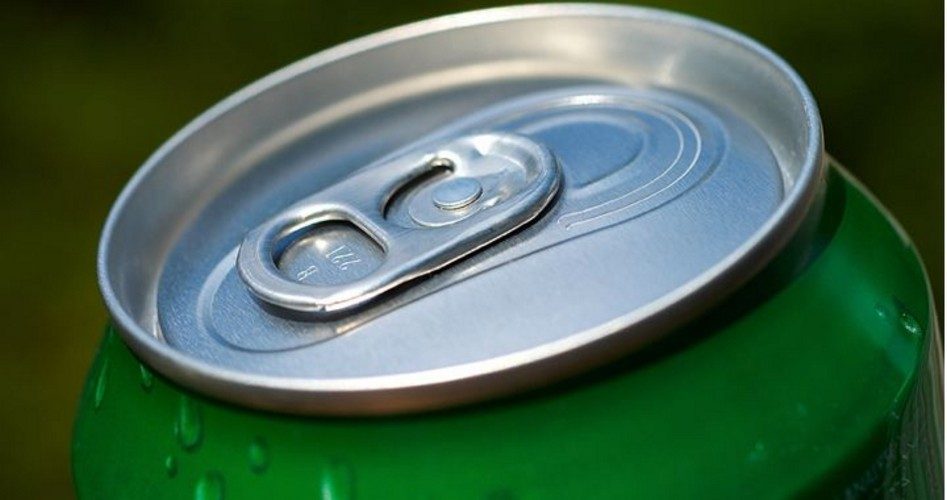
The city of Philadelphia is poised to impose a 1.5-cent-per-ounce tax on sodas and other sugary drinks, supposedly to combat obesity but also to raise revenue for pre-kindergarten education and a variety of other programs. But is it likely to succeed? According to a review of the literature by the Competitive Enterprise Institute (CEI), the answer is a resounding “no.”
The City of Brotherly Love isn’t the first U.S. city to impose such a tax. New York City and Berkeley, California, both have levies on sugary drinks. Entire nations, including France and Mexico, have imposed taxes on sodas and other sucrose-laden comestibles in an alleged effort to shrink their citizens’ calorie consumption and, therefore, their waistlines.
While the politicians responsible for the taxes and their cheering sections would prefer to be judged on the basis of their stated intentions — who, after all, could be opposed to fighting obesity? — the fact is that “soda taxes disproportionately affect the poorest members of society while failing to achieve both their stated public health and revenue goals,” wrote CEI’s Michelle Minton.
The theory behind these taxes, of course, is that making something cost more will cause people to consume less of it. That is often true, but, noted Minton, “not everyone responds to price increases in the same way or the same over time.”
For example, a survey of 8,000 households by the Mexico Autonomous Institute of Technology (ITAM) found that Mexico’s 10-percent soda tax, instituted in 2014, had almost no impact on the actions of those it might be expected to affect the most. Those in the lowest socioeconomic strata and those with an obese head of household hardly changed their behavior at all in response to the tax. As a result, “those with the least amount of money are paying a greater proportion of the soda tax, which raised $1.3 billion for the Mexican government in 2014,” penned Minton.
Furthermore, even those who do initially cut back on soda consumption tend to return to their old habits over time as they become accustomed to the higher prices and, perhaps, adjust their other spending accordingly. Soda sales in Mexico dropped 1.9 percent in the first year of the tax but then grew 0.5 percent the following year, “making the country a key-growth market again for soda giants Coca-Cola Co. and PepsiCo Inc. ,” the Wall Street Journal reported in May. Similarly, Finland’s 2011 candy tax slightly reduced Finns’ sugar consumption in its first year but soon lost its sting, and candy sales rebounded. According to the Finnish news program Yle Uutiset, the tax “does not seem to have significantly affected” Finns’ health but did harm domestic candy makers, whose production costs are higher than those of their foreign competitors. And a 2012 Cornell University experiment funded by the National Institutes of Health found that subjecting households to a 10-percent tax on calorie-dense foods and drinks led to a very short-lived reduction in soda consumption — and to an increase in beer consumption.
If soda taxes don’t reduce soda consumption very long, they obviously won’t do much to combat obesity. Even when they succeed in reducing soda intake, however, it doesn’t necessarily translate into weight loss.
In the United States, sugary drinks only account for about seven percent of Americans’ caloric intake, researchers estimate. Thus, even if taxes manage to reduce soda consumption, the effect on individuals’ weights is not likely to be significant. Indeed, “researchers who looked at the effects of soda taxes of up to 40 percent found only the smallest amount of weight change after a year,” observed Minton. “They found that people in the study rarely switched from full-sugar soda to either diet soda or water, and instead substituted sodas with equally high-calorie products.”
This was borne out in the case of Mexico, which leads the world in per-capita soda consumption. According to Minton, studies found that the initial reduction in soda intake under the tax “resulted in an average decrease of six to seven calories a day,” in part because people simply replaced sodas with other calorie-laden products, including other sweetened drinks or foods high in sodium and fat. The ITAM study concluded that the tax had “no discernible difference across the years in” Body Mass Index (BMI).
In short, soda taxes do little to nothing to combat obesity. Instead, concluded Minton, “they disadvantage those least able to absorb the cost” — the very people the same politicians imposing the taxes claim to champion — “without measurably improving public health.”
Does this mean the end of such foolish schemes? Clearly not, as the latest Philadelphia experiment shows. Besides giving politicians an opportunity to say they are “doing something” about the obesity epidemic, soda taxes have one other important benefit to them: As Yle Uutiset observed about the Finnish sweets tax, such levies “improve[] the health of the state budget.”



